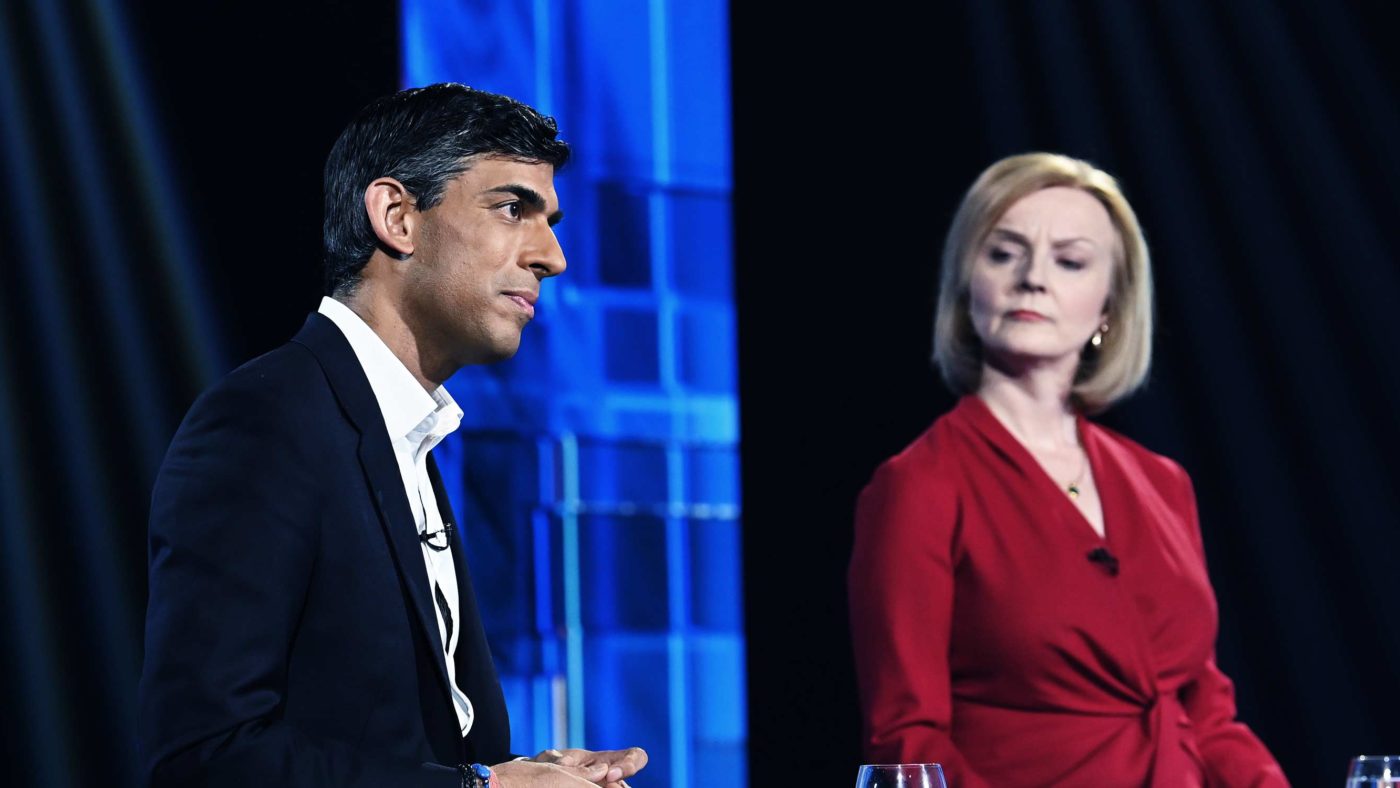Leadership contests are rarely pleasant affairs, but at least the opening stages of this blue-on-blue battle have been mercifully short. After two weeks of briefing, leaking, sniping and sloganeering ten hopefuls have been whittled down to the two many would have predicted at the start.
Labour have simply sat back and revelled in their opponents tearing strips off each other. The party’s latest ad was a compilation of Conservatives attacking their own government’s record. Just how damaging the contest will be for the Tories is a moot point, however.
For one thing, as Matt Singh pointed out on CapX, historically leadership contests don’t tend to have a big impact on the polls – and parties often emerge in better shape afterwards. There’s also a case, made by pollster James Johnson, that Boris Johnson’s popularity has slumped so far that whoever succeeds him is all but guaranteed to fare better with voters.
So what is the choice ahead of Tory members now?
In truth, the differences between Liz Truss and Rishi Sunak seem more to do with temperament and “vibe” than ideology. Even on the issue of tax cuts which has animated the economic debate so far, the arguments seem to be chiefly about timing, rather than inclination. Indeed, at the last Budget it was Sunak who was touting his credentials as a low-tax Tory. And his supporters would reject the idea that he is a tax-raiser by instinct, pointing out the extraordinary economic firestorm he’s had to deal with over the last couple of years.
When it comes to economics, both candidates claim to be the true heir to Mrs Thatcher. That’s not a debate that gets us terribly far, however. As William Atkinson wrote on Friday, the Iron Lady was both a tax cutter and a staunch fiscal conservative. What Truss and Sunak are really arguing over is which bit of her legacy is the most relevant to our current circumstances. (Personally, I hope we see less of this as the contest develops. Nothing is quite so irrelevant to the general public as a party indulging in an ideological purity contest.)
But the biggest concern about the contest so far is the absence of some of the biggest issues facing the country. For instance, we’ve heard vanishingly little about house prices or planning, or about the enormous and ever-increasing pressure that NHS spending is putting on the public finances.
True, Sunak has produced a ‘national emergency’ plan for the health service, but it’s chiefly concerned with the immediate challenge of getting waiting lists down, rather than the fact the NHS is a gaping money pit where patients far too often get a sub-par service.
Truss has a similar urgency on the economy and plans an ‘emergency budget’, with about £30bn of tax cuts. That may be music to the ears of many Tory members (and readers of this site), but as Shanker Singham noted this week, tax reform should be just one part of a much more ambitious and radical package of economic reform.
Of course, with a desperately difficult winter ahead, voters will want to hear about what the next PM will do to alleviate the impact of rising prices. But their broader, and equally urgent task, is to arrest a pervasive, self-fulfilling sense of decline – to show not just what they want to do now, but where they want to take the country in the years to come.
Click here to subscribe to our daily briefing – the best pieces from CapX and across the web.
CapX depends on the generosity of its readers. If you value what we do, please consider making a donation.


